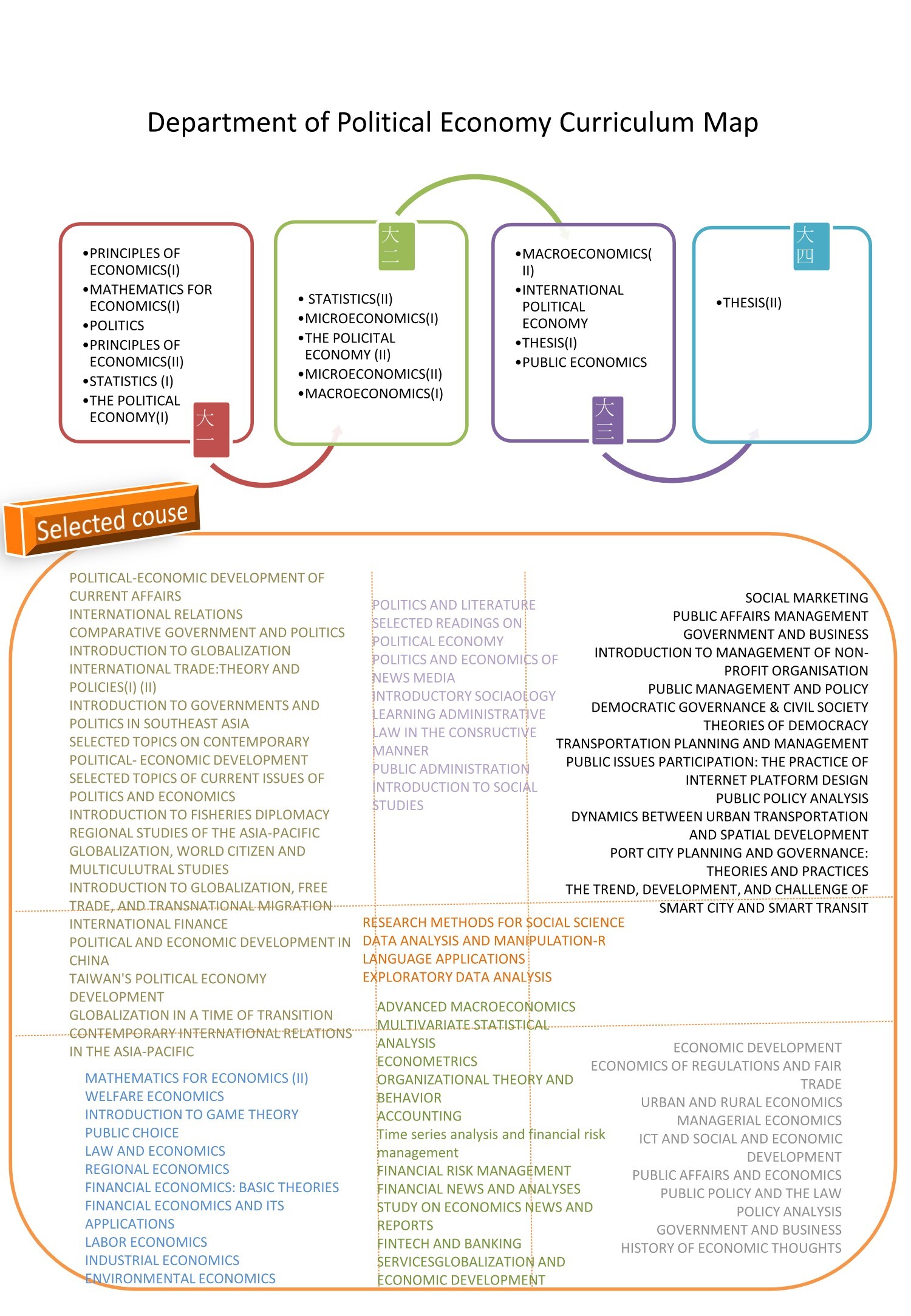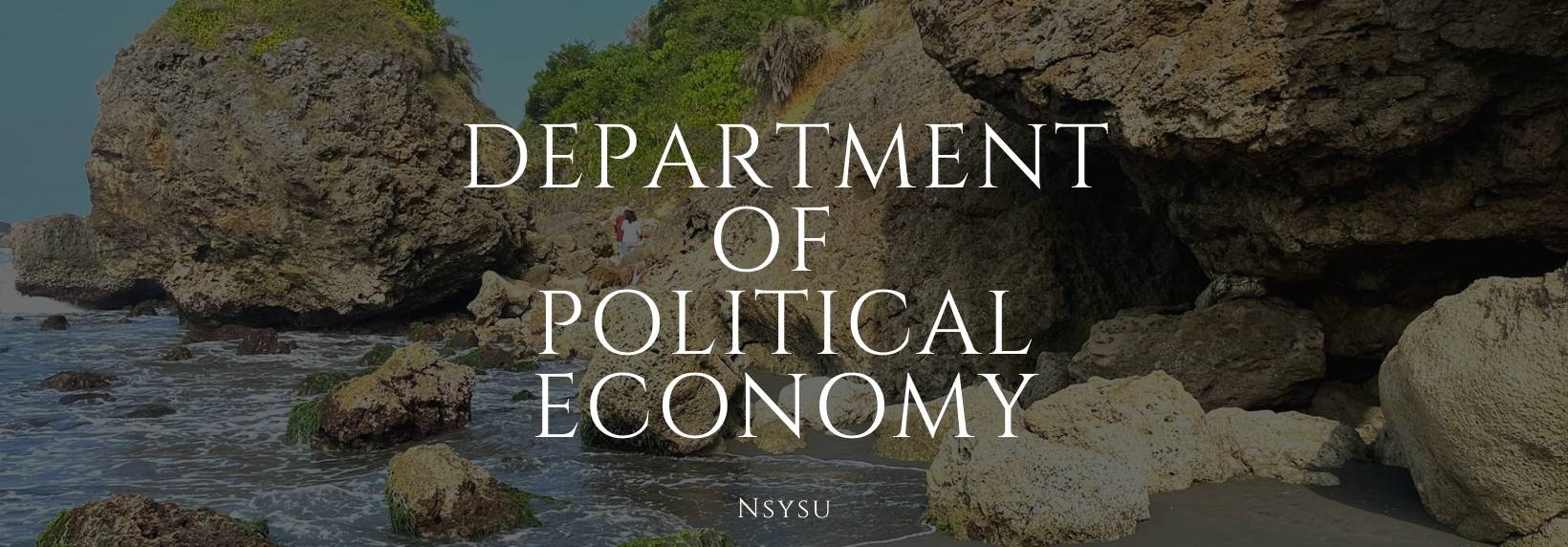Curriculum
Students may choose from one of the following three modules.
Theory and Methodology focuses on theoretical studies. The module provides students with a broad perspective on humanities and political science, concentrating the training on the capacity to analyze theoretically.
Political and Economic Institutions expounds the formation and logic of political and economic institutions, how these institutions are organized, what problems are confronted when running then and how to overcome such difficulties.
Globalization, Economic Security and Sustainable Development helps students explore global political-economic developments and understand how global transition is related to domestic issues and national development.
All modules aim to provide students with comprehensive knowledge and understanding regarding:
- The Foundations of Political Science and Economics --
Students are, first of all, expected to be familiar with the basic theories and literature in both political science and economics in order to proceed with interdisciplinary training. - The Interrelationship Between Politics and Economics--
This module explains how political and economic activities interact and how they are interrelated. The interaction of political and economic activities is pervasive. For example, their interaction impacts the formation of political institutions, the decision making process of public policies, and the development of the economic system. Students are expected to be able to make both philosophical and empirical analyses. - The Contemporary Challenges of Politics and Economics--
The world is being propelled to democratization and globalization; but also challenged by the demands of sustainability. Sstudents are led to explore the global structure which is facing them and are expected to figure out possible ways we can resolve these challenges domestically and internationally. - The Skills for Critical Analysis-- In order to develop students' ability to appreciate the fruitful academic achievements of predecessors in this field, the modules are designed to strengthen the students' methodological thinking of political economy, as well as the academic history of disciplines concerned. Students are trained to think dialectically, reflexively and independently, and be able to handle different theoretical models, materials and analytic instruments.
Apart from academic training, language courses are offered to enhance students' English proficiency. The department also organizes fieldtrips and volunteer schemes for students to participate in different activities and the operation of various non-governmental organizations. Our students will then contribute to the
establishment of a mature civil society, and learn to be loving and caring and to feel responsible for global society, which we believe to be the primary and ultimate goal of higher education.


